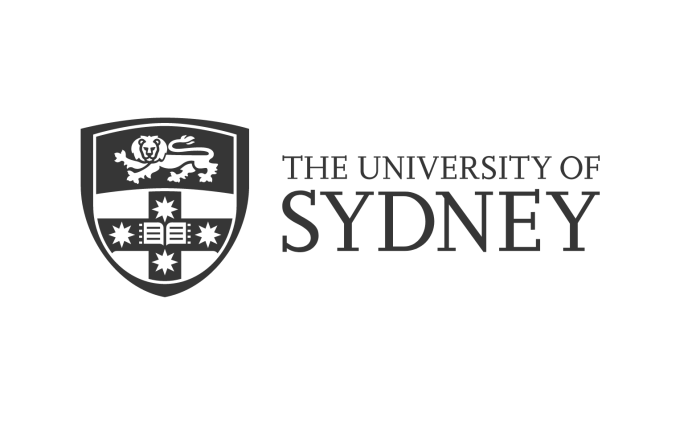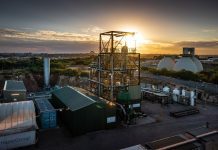
Media Release by University of Sydney
The Net-Zero Initiative harnesses the University of Sydney’s research expertise to develop new technologies and systems to support the world’s decarbonisation.
The University of Sydney has today launched the Net-Zero Initiative, an ambitious, industry-geared program that will advance research in renewable energy, climate change modelling, decarbonisation, low emissions technologies, and carbon capture and conversion.
It has been commenced to help government, industry and communities manufacture, deploy and adopt low emissions technology swiftly, cost-effectively and at scale.
“The pursuit of net-zero emissions and a sustainable future for our planet is among the greatest challenges of our time. Our decades of research excellence are playing an important role to help tackle it,” said Professor Willy Zwaenepoel, Dean of the Faculty of Engineering.
The Initiative was officially launched by NSW Treasurer and Minister for Energy, The Hon. Matt Kean, who believes it will play a meaningful role in the state’s move towards decarbonisation, while driving a significant economic opportunity for Australia.
“The Net-Zero Initiative is about helping Australian businesses gain first mover advantage by understanding, developing and adopting innovative and commercially viable emissions reduction technologies early,” Mr Kean said.
“I hope it will educate the next generation of scientists, economists, lawyers, engineers, urban planners and teachers who will be central to the transition to net-zero emissions.”
To accelerate the path to net-zero and navigate a rapidly changing industrial, energy and economic landscape, the Initiative will foster deep collaboration and partnerships between research, industry, policymakers and the community.
University of Sydney Vice Chancellor and Principal Professor Mark Scott said the University has a long and proud history of developing research and skills to tackle climate change and is eager to share its expertise with industry to foster large-scale adoption of decarbonisation technologies.
“We’re keen to initiate meaningful conversations with industry and government to achieve net-zero. Only by working together can we rapidly scale up the implementation of existing and emerging zero and low emissions technologies,” Professor Scott said.
“Our researchers have a proven track record in underpinning new industries, companies and technologies, including several highly successful ASX-listed and international companies, like energy storage developer Gelion, which listed on the London Stock Exchange AIM market last November.
“We have educated industry leaders, entrepreneurs and policy makers. On top of that, we invest in state-of-the art facilities, which allow us to conceive and develop great research right here on campus in the heart of Sydney.”
The Faculty of Engineering conceived the Initiative, comprising expertise and researchers from the Faculty of Engineering, Faculty of Science, Sydney Business School, Faculty of Arts and Social Sciences and Sydney Law School.
Globally, the enormous shift towards net-zero has seen annual expenditure in decarbonisation rise to US$2.4 trillion. Professor Zwaenepoel said: “The wheels are in motion, now it’s time to add some lift. To ensure Australia’s climate security and future prosperity it’s vital that we develop an unparalleled arsenal of expertise and commercialisation in this area.
“Recently, global events have demonstrated how quickly energy security can be threatened when there is an over reliance on ‘old world’ energy systems. Australia is uniquely positioned to become a renewable energy leader: when it comes to hydrogen, solar, wind, mineral resources and sheer land mass there are few countries that can compete. Add skills-based industry and research excellence into the mix, and we are unparalleled.”
Initiative forwards four key areas
The Net-Zero Initiative will advance research and development in four key areas – climate change risk, zero emissions electricity, zero emissions fuels and products and carbon capture and removal – and brings together over 100 of the world’s foremost researchers in engineering, science, urban planning, policy, carbon accounting, behavioural science and renewables.
- One such project is the work of Professor Jun Huang, whose team has built a pilot plant reactor that converts carbon and greenhouse materials to hydrogen fuel. The process works by capturing CO2 emissions directly from power plants, with another project focused on capturing CO2 emissions from large-scale air-conditioning systems in large buildings.
- Professor Deanna D’Alessandro from the Faculty of Science is leading the development of a novel carbon-removal process – otherwise known as direct air capture (DAC) – whereby historical carbon dioxide emissions are removed from the air.
- Leading Chemical Engineering researcher, Professor Yuan Chen, is working with Hazer Group and Gelion Technologies to develop carbon nanotubes, nanofibers, and synthetic graphite, which are highly efficient conductors that can be used for a range of applications, such as the fast charging of batteries for electric vehicles and new generation batteries that can store renewable power.
- Smart ‘net-zero’ buildings will also be a central facet of the University’s decarbonisation efforts, with a team led by Professor Albert Zomaya from the School of Computer Science developing energy management systems to create sustainable buildings.
- Other researchers are using complex mathematical and computational methods to better understand the impact of climate change on our world, environment and systems like agriculture.
- Advanced computational techniques and data-driven model optimisation are also being harnessed to improve the efficiency and reduce the cost of renewable energy contributing to energy security and reducing emissions. One such example is the work of Professor Ben Thornber, whose team is working with wind farm provider Iberdrola.




















